In the world of employment law, restrictive covenants play a crucial role in protecting a company’s interests. These clauses, often included in employment agreements, aim to prevent employees from engaging in certain activities after leaving the company. While they are essential for safeguarding intellectual property, confidential information, and client relationships, the implementation of restrictive covenants requires a delicate balance between protection and fairness.
Types of Restrictive Covenants
1. Non-Compete Agreements: Non-compete clauses prevent employees from working for direct competitors or starting competing businesses for a specified period after leaving their current employer. The enforceability of these agreements varies widely depending on jurisdiction and the specific circumstances of the employment relationship.
2. Non-Solicitation Agreements: Non-solicitation clauses prohibit former employees from soliciting the company’s clients, customers, or other employees for a set period after their departure. These clauses are crucial for maintaining client relationships and preventing unfair competition.
3. Non-Disclosure Agreements: Non-disclosure agreements (NDAs) prevent employees from disclosing or using the company’s confidential information or trade secrets. These agreements are essential for protecting sensitive business information, intellectual property, and proprietary processes.
4. Non-Disparagement Clauses: Non-disparagement clauses restrict former employees from making negative or disparaging remarks about their former employer, its products, services, or employees. These clauses aim to protect the company’s reputation and goodwill.
Benefits of Restrictive Covenants
Employers benefit from these clauses in several ways:
- Protection of Intellectual Property: By preventing employees from working for competitors or starting competing businesses, companies can protect their intellectual property and trade secrets.
- Preservation of Client Relationships: Non-solicitation agreements help maintain relationships with clients and customers, reducing the risk of losing business to former employees.
- Maintaining Company Reputation: Non-disparagement clauses help protect the company’s reputation and brand image.
Top Free Restrictive Covenants for Employment Agreement Templates:
Here are our specially curated Top Free Restrictive Covenants for Employment Agreement Templates, just for you!
***** Template Rated 1st *****
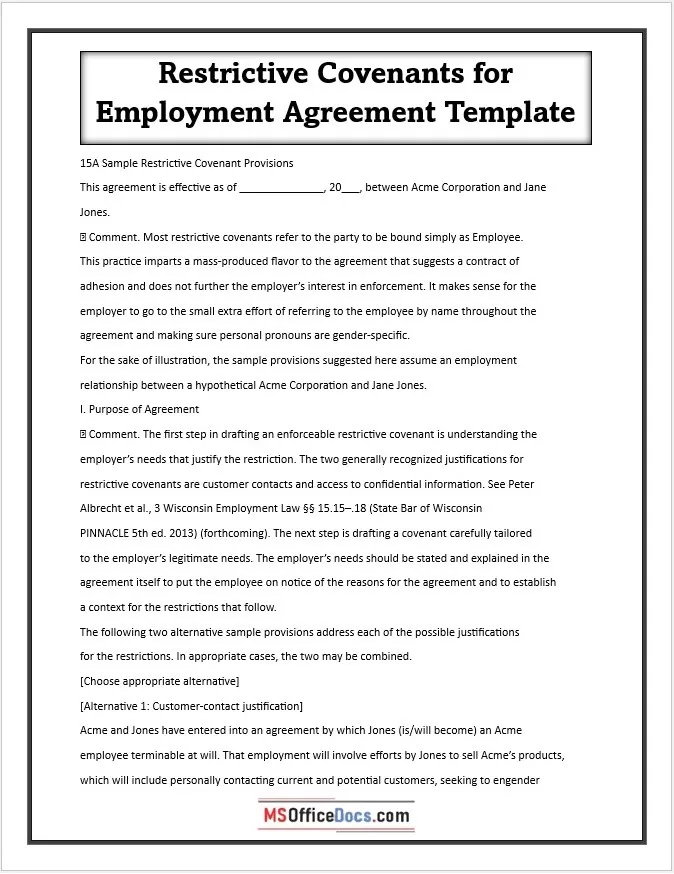
Source: msofficedocs.com
*** Template Rated 2nd ***
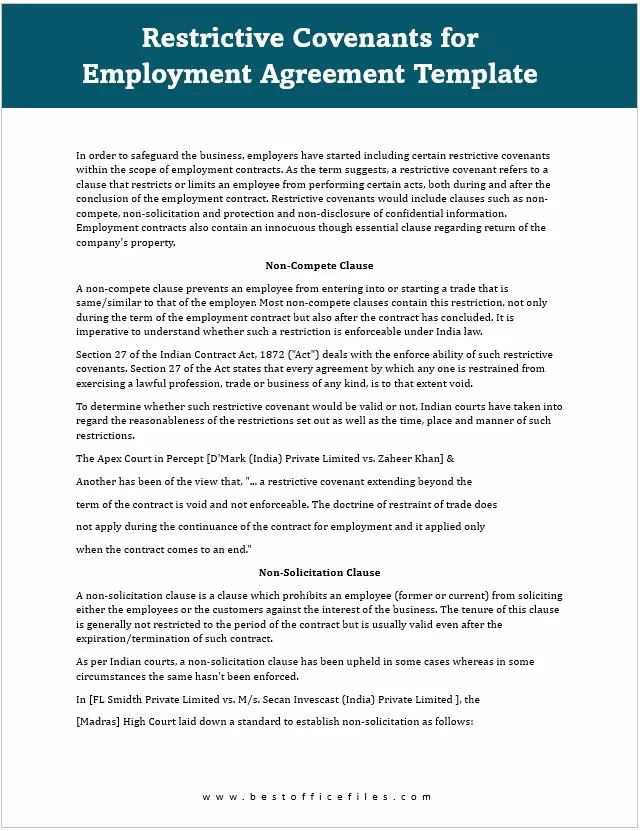
Source: bestofficefiles.com
*** Template Rated 3rd ***
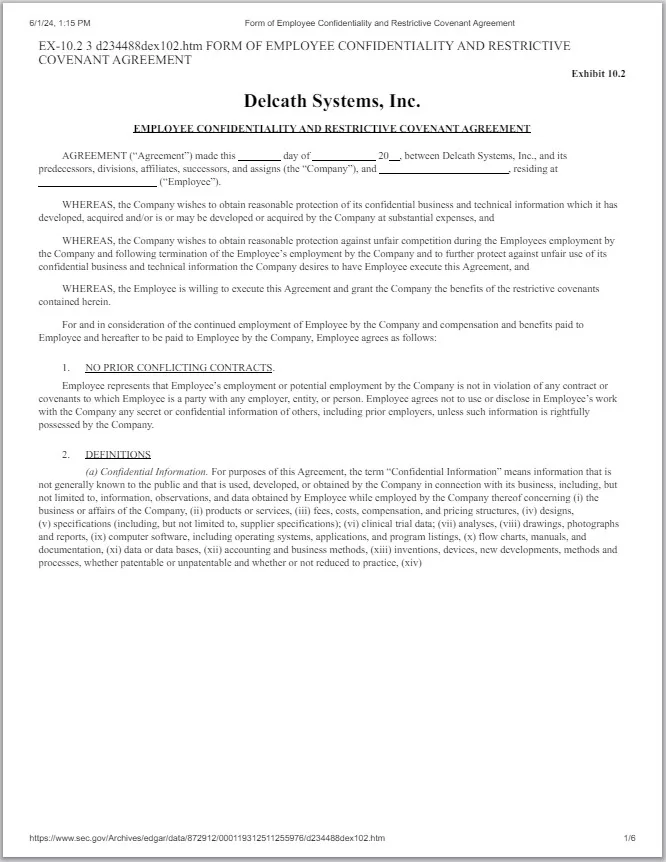
Source: sec.gov
*** Template Rated 4th ***
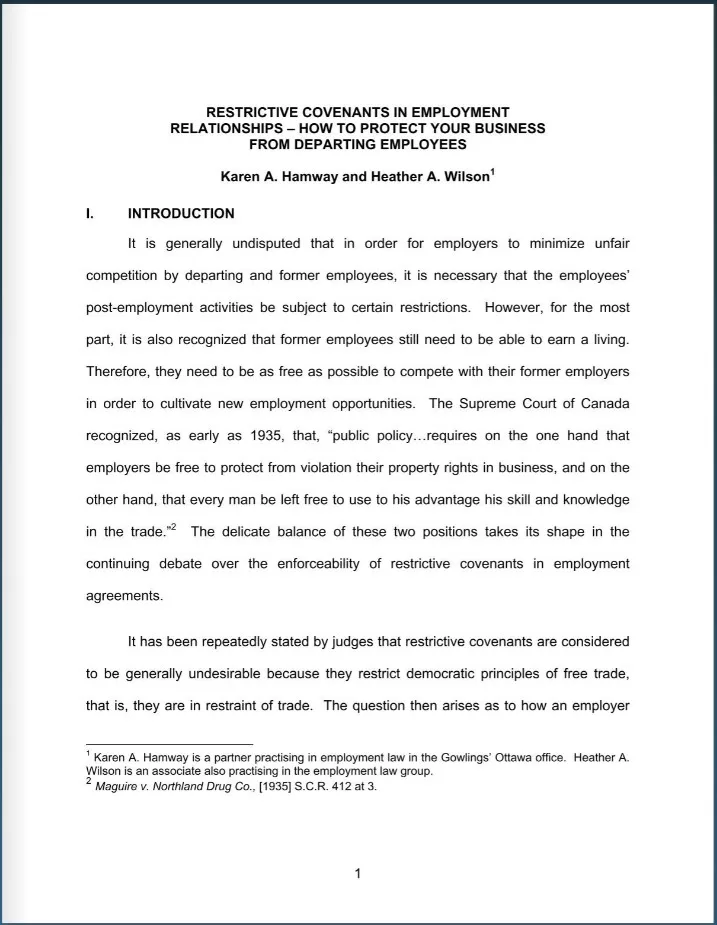
Source: yumpu.com
*** Template Rated 5th ***
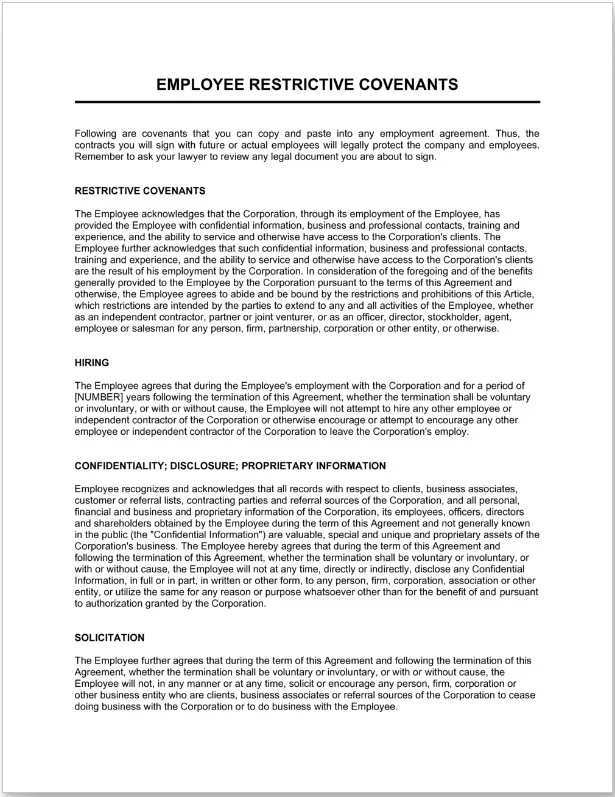
Source: business-in-a-box.com
Challenges and Considerations
While restrictive covenants offer significant benefits, they must be carefully crafted to be enforceable and fair. Some challenges include:
- Enforceability: Courts often scrutinize these agreements to ensure they are reasonable in scope, duration, and geographical area.
- Employee Rights: Restrictive covenants must not unreasonably restrict an employee’s ability to earn a livelihood or pursue their career.
- State-Specific Regulations: Laws regarding restrictive covenants vary by state, with some states limiting their enforceability more than others.
Balancing Protection and Fairness
While restrictive covenants provide valuable protections for businesses, they must be carefully crafted to ensure they are fair, reasonable, and enforceable. Here are some key considerations:
1. Reasonableness: Courts scrutinize restrictive covenants to ensure they are reasonable in terms of duration, geographic scope, and the activities restricted. A restrictive covenant that is overly broad or overly long may be deemed unenforceable.
2. Geographic Scope: The geographic area covered by a non-compete or non-solicitation agreement should be limited to areas where the company does business or has legitimate interests. Overly broad geographic restrictions may render the agreement unenforceable.
3. Duration: The duration of restrictive covenants should be reasonable and proportionate to the legitimate interests being protected. For example, a non-compete clause lasting several years may be excessive, while a non-disclosure agreement may remain in force indefinitely.
4. Employee Considerations: Restrictive covenants must not unreasonably restrict an employee’s ability to find new employment or pursue their career. Courts often balance the employer’s interests with the employee’s ability to earn a livelihood.
In conclusion, restrictive covenants are valuable tools for protecting a company’s interests, but they must be carefully crafted to be enforceable and fair. By balancing protection with fairness and legality, companies can create employment agreement templates that benefit both themselves and their employees. It’s crucial to seek legal advice when drafting these agreements to ensure compliance with state-specific laws and regulations. This approach not only protects the company but also promotes a fair and respectful work environment for all parties involved.

Jim Karter is a seasoned blogger with a profound interest in the intricacies of office document processes. With years of experience in the field, Jim has dedicated his career to helping individuals and businesses streamline their daily tasks through the use of efficient and practical templates. His passion for organization and productivity shines through in every piece of content he creates.
